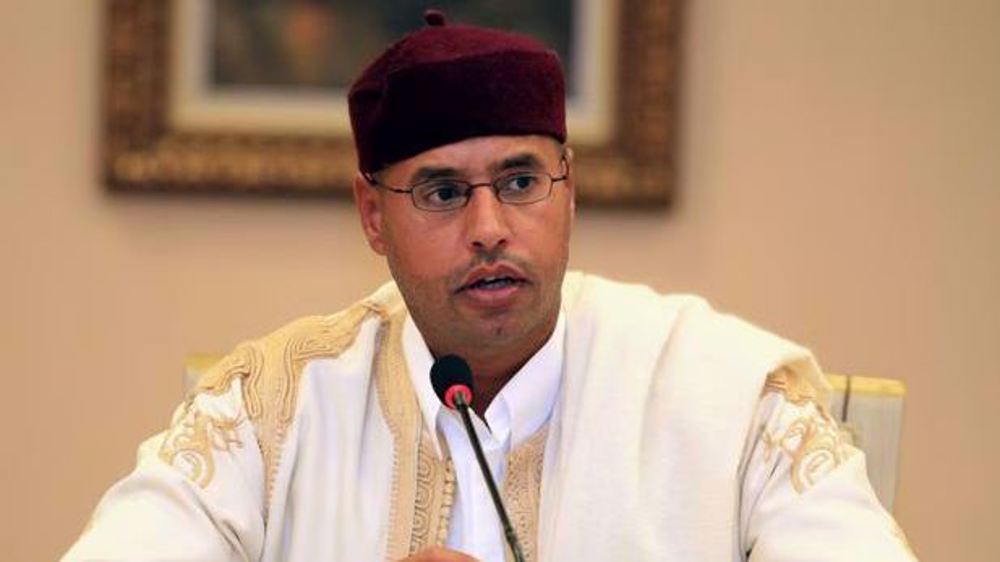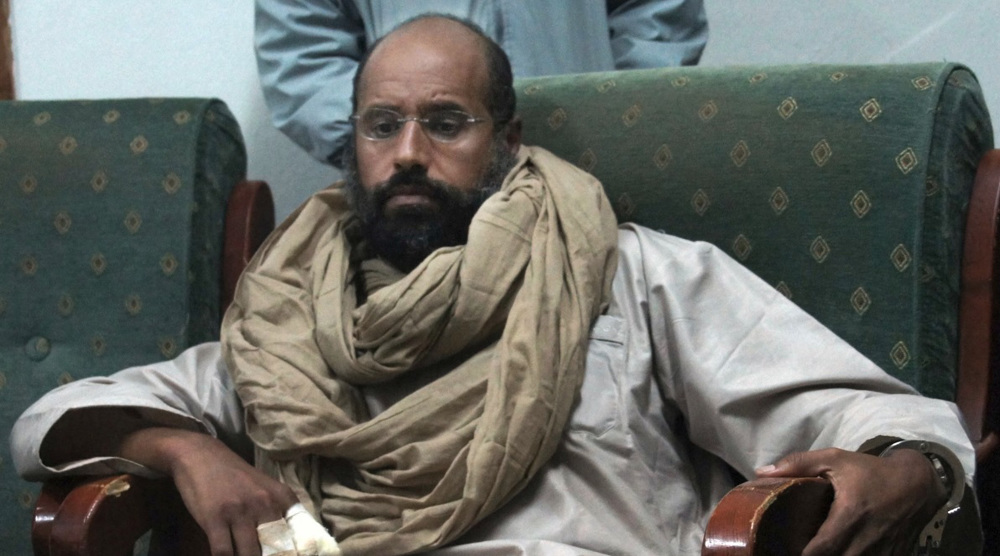Libya marks 7th anniversary of revolution that brought mixed results
Thousands of people in Libya have marked the seventh anniversary of a revolution that led to the fall of longtime dictator Muammar Gaddafi but ushered in an era of instability in the country.
Libyans took to the streets of the country’s capital, Tripoli, and other major cities on Saturday to mark the anniversary of the 2011 uprising, which saw the overthrow and death of their ruler.
Crowds gathered in the capital’s Martyrs’ Square, waving Libyan flags and chanting slogans as a tribute to the revolution, with security forces deployed to ensure that the commemoration remained peaceful.
Similar rallies were also held in the eastern city of Benghazi and Misrata in the west.
While it removed a dictator, the Libyan revolution did not bring stability to the country. Rival militia groups have since been vying for power, and no effective government has been in place.

In a televised speech on Saturday, Prime Minister Fayez al-Sarraj acknowledged his government’s shortcomings and said national reconciliation was a solution to end divisions in Libya and ease the crisis facing the North African country.
“Maybe a regime has ended, but the truth is we have not managed to rid ourselves of a culture that has dominated the minds and behavior of many people, who today are at the forefront of politics and who consider the homeland as booty,” Sarraj said.
He accused other countries, without naming any, of “fueling” the conflict in Libya and called on them to stop intervening in his homeland.

On February 17, 2011, people across Libya took to the streets, calling for freedom and democracy. The uprising was marred by violence after a NATO intervention in March that year and bloody clashes between pro- and anti-Gaddafi forces later.
The former ruler was ousted from power after a 42-year-long dictatorship in August 2011 and killed two months later.
Libya has been struggling with instability since then, with two rival governments ruling in different parts of the country — the Government of National Accord (GNA) and a rival administration backed by military strongman Khalifa Haftar. The country’s executive and legislative branches have also been paralyzed by fierce rivalries between political movements, ideologies, and tribes.
The rise of extremism and the presence of terrorist groups in the oil-rich country have also resulted in the deterioration of living conditions.
UN warns of ‘shocking’ Sudanese paramilitary war crimes in El Fasher
VIDEO | Fuel shortages in Gaza hinder emergency services
VIDEO | Another US government shutdown looms as ICE furor grows
VIDEO | EU lawmakers condemn Trump over US human rights abuses
VIDEO | Iranian Embassy marks 47 years since Islamic Revolution with high-level attendance
Funding lapse set to trigger US Department of Homeland Security shutdown
Gaza’s civil defense says 8,000 bodies of genocide victims remain under rubble
Iran: Israeli violations main obstacle to peace, security in Syria









 This makes it easy to access the Press TV website
This makes it easy to access the Press TV website